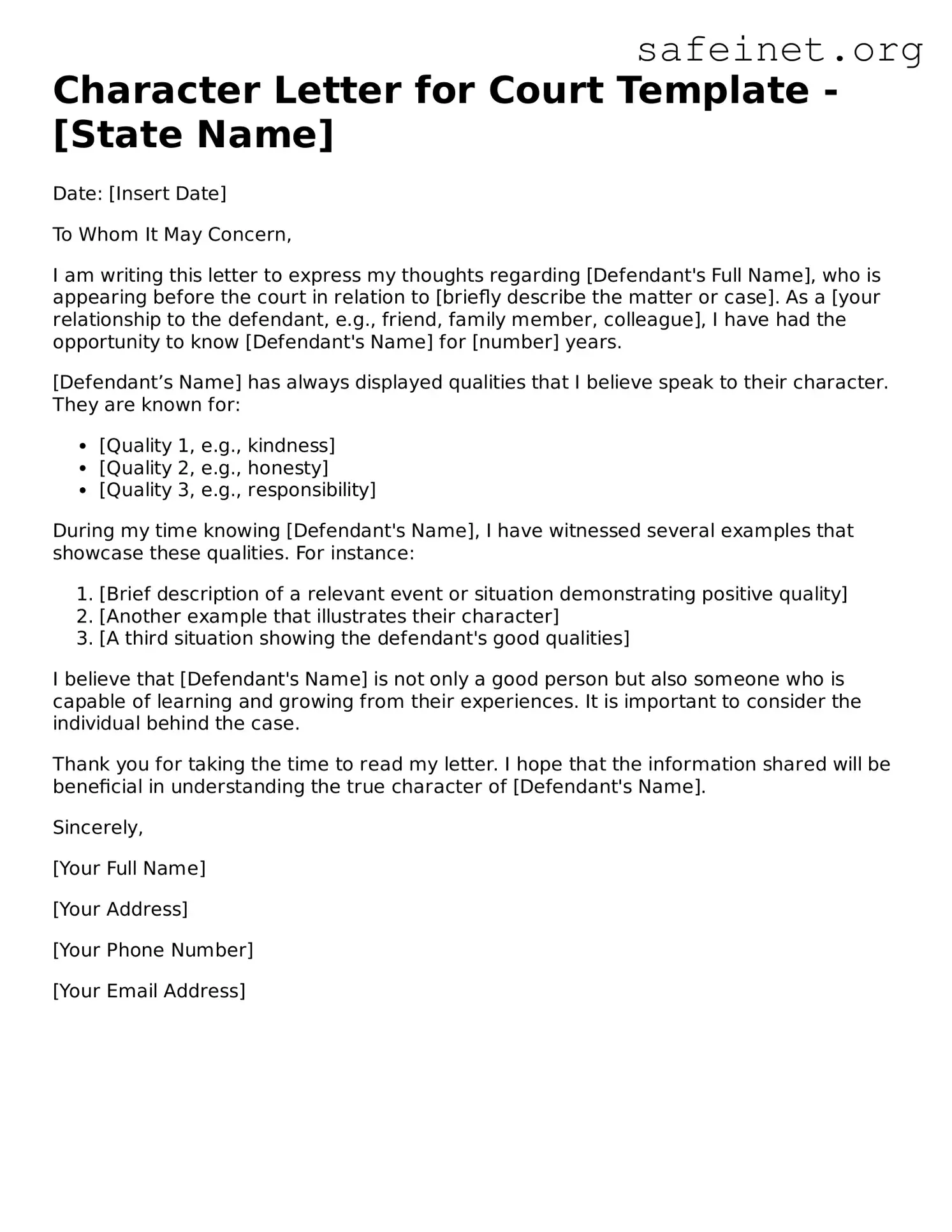The Character Reference Letter, like the Character Letter for Court, serves as a personal account of an individual's character, often used to support their case in legal settings. It provides insights into the person's behavior and moral standing and can be written by anyone who knows the individual well, such as friends, family members, or colleagues. This document aims to offer a perspective on the person's reputation, often highlighting positive attributes that help to create a fuller picture of their character for the court.
Another document similar to the Character Letter for Court is a Personal Reference Letter. While the primary purpose aligns with character references, a Personal Reference Letter is versatile and can be used in various contexts, such as employment applications or academic admissions. Unlike the more formal Character Letter for Court, this letter typically adopts a more conversational tone, allowing the writer to express their genuine feelings about the individual, often including anecdotes or stories that reflect the person’s qualities.
The Affidavit of Support can also bear similarities. This document is often required in immigration cases and serves as a legal statement by a person pledging financial support for an immigrant. Such letters can provide valuable context about the immigrant's character, often mentioning shared experiences that highlight their good nature and reliability, which may serve to strengthen the case in a manner akin to the Character Letter for Court.
A Letter of Recommendation may share similarities as well. Such letters are generally used to vouch for a person's skills, work ethic, and capabilities, often in employment or academic contexts. While it’s typically more focused on professional attributes, it can also touch upon the individual’s character traits that may resonate with the judge or magistrate, thereby serving a complimentary function to the Character Letter for Court.
The Sentencing Memorandum, while more structured, also serves a similar purpose. This is typically prepared by legal counsel and integrates various character letters into a single document to present a comprehensive view of the individual prior to a sentencing hearing. It includes factual information and character assessments to influence the judge's decision. Its formal nature and inclusion of personal letters make it akin to a Character Letter for Court.
A Support Letter for Family or Individual in Crisis can be similar in nature. When someone faces legal challenges or personal difficulties, these letters provide emotional backing and practical support from friends or community members. These letters often detail the individual’s positive traits and contributions to the community, aiming to persuade the reader, whether a judge or another authority, of the individual's merits, which mirrors the supportive intent of the Character Letter for Court.
The Letter of Advocacy can also align closely with the Character Letter for Court. Advocates often write these letters to support an individual as they navigate the legal system. They focus on the individual's struggles, strengths, and contributions to society, all intended to present a compassionate view of the person’s life. This document can have a significant impact on the reader and bears resemblance to the character-focused nature of the Character Letter for Court.
The Community Support Letter is another similar document. This type of letter generally expresses support for an individual from various members of the community. It emphasizes the person’s positive impact on their surroundings and can include testimonies regarding their character traits. Like the Character Letter for Court, it aims to portray an image of the individual that can help sway opinions in their favor.
Finally, the Support Letter from Organizations or Groups, such as charities or local businesses, can also be compared with the Character Letter for Court. When organizations vouch for an individual, attaching their reputation to the person, they highlight the individual's contributions and character. By demonstrating how the person positively impacts the organization or group, these letters provide compelling support that can complement what is expressed in the Character Letter for Court.
